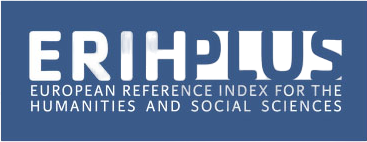Time and process in the digital age
##plugins.themes.bootstrap3.article.main##
Downloads
##plugins.themes.bootstrap3.article.details##
Abrão, C. (2009). Proceso electrónico: Ley N° 11.419, de 19 de diciembre de 2006. São Paulo: Editora Revista dos Tribunales.
Alvim, J. & Cabral, J. (2008). Proceso judicial electrónico. Curitiba: Juruá.
Andolina, I; Vignera, G. (1997). Los fundamentos constitucionales de la justicia civil: el modelo constitucional del proceso civil italiano. 2. ed. Torino: G. Editorial Giappichelli.
Ateniense, A. (2010). Comentarios sobre la Ley N°11.419/06 y las prácticas procesales por vía electrónica en los tribunales brasileños. Curitiba: Juruá.
Baracho, J. (2008). Derecho Procesal Constitucional:aspectos contemporáneos. Belo Horizonte: Forum.
Barros, F. (2008). Las razones de las decisiones de modelo constitucional del proceso. Revista del Instituto Hermenéutico Jurídico. v. 6. Porto Alegre, pp. 131, 148.
Breton, de Carvalho Dias Ronaldo. Proceso constitucional y el estado democrático. Belo Horizonte: Del Rey, 2010.
Calmon de Pasos, J. (2008). Consideraciones de un hombre de las cavernas en el proceso electrónico. En: JAYME, Fernando Gonzaga; FARIA, Juliana Cordero; y laura María Tierras (coordinadores). Proceso civil: nuevas tendencias. Belo Horizonte: Del Rey, pp. 95-99.
Dinamarco, C. (1998). La instrumentalidad del proceso. São Paulo: Malheiros.
Fazzalari, E. (1992). Instituciones de derecho procesal. Padova, CEDAM.
Goldschmidt, J. (1936). Teoría general del proceso. Barcelona: Editorial Labor.
Gomes, C. (2003). Tiempo de los tribunales: un estudio sobre la lentitud de la justicia. Coimbra: Coimbra Editora.
Goncalves, A. (1992). Técnica de procedimiento y de la teoría del caso. Río de Janeiro: Aide.
Greene, B. (2001). El elegante universo: supercuerdas, dimensiones ocultas y la búsqueda de la teoría final. São Paulo: Compañía de las Letras.
Habermas, J. (2003). Derecho y democracia: Entre facticidad y validez. Trad. Flávio Beno Siebeneicheler. Río de Janeiro: Tiempo de Brasil.
Hesse, K. (1991). Normativa de la Fuerza de la Constitución. Trad. Gilmar Ferreira Mendes. Porto Alegre: Sérgio Antônio Fabricación Editor.
Lipovetsky, G. (2004). Los tiempos hipermodernos. São Paulo: Editora Barbacolla.
Marramao, G. (2005). Apología del tiempo de débito. Roma: Editorial Laterza.
Marramao, G. (2008). La pasión del presente. Turín: Bollato Boringhiero.
Martins, C. (2010). El punto ciego de la derecha: las lecciones brasileñas. Río de Janeiro: Editora Lumen Juris.
Nunes,J. (2008). Proceso Constitucional Democrática. Curitiba: Juruá.
Prigogine, I. (2008). El nacimiento de tiempo. Lisboa: Ediciones 70.
Taruffo, M. (2001). Aspectos fundamentales del proceso del Civil, Derecho Civil y Derecho Común. Diario Facultad de Derecho de la UFPR, volumen 36, pp. 27-48.

















